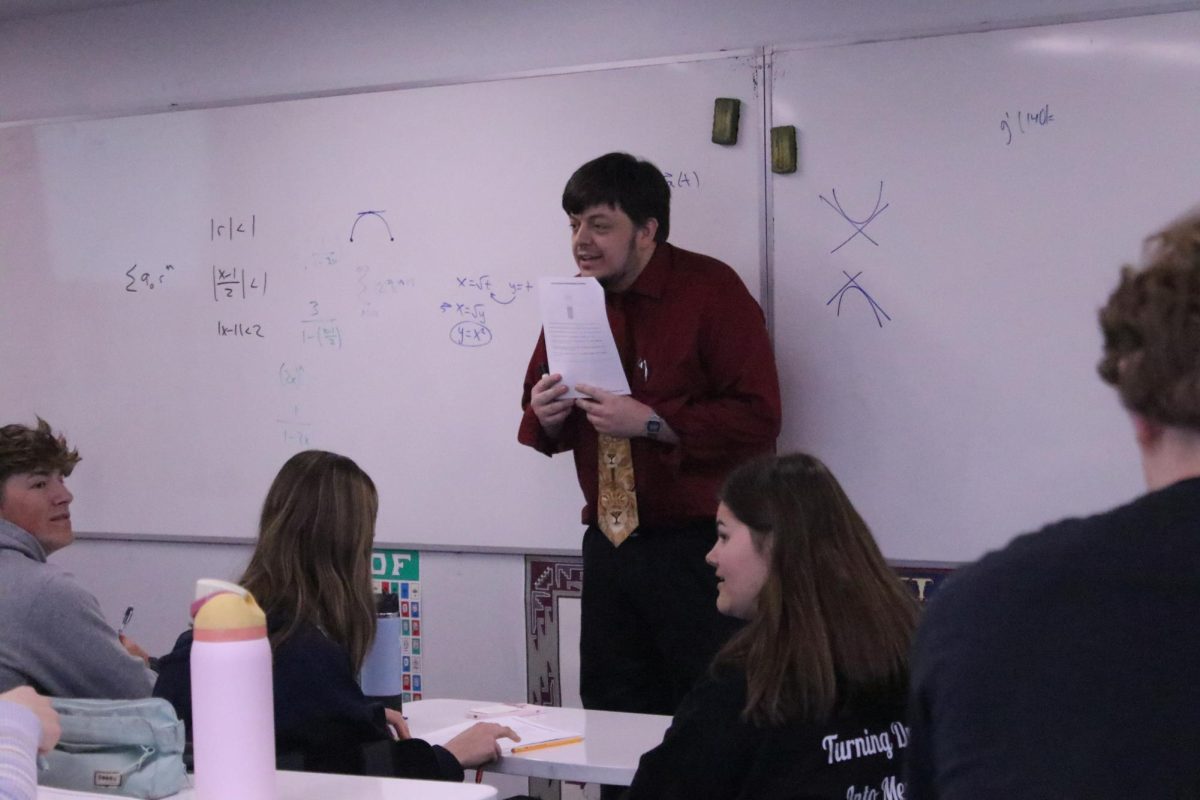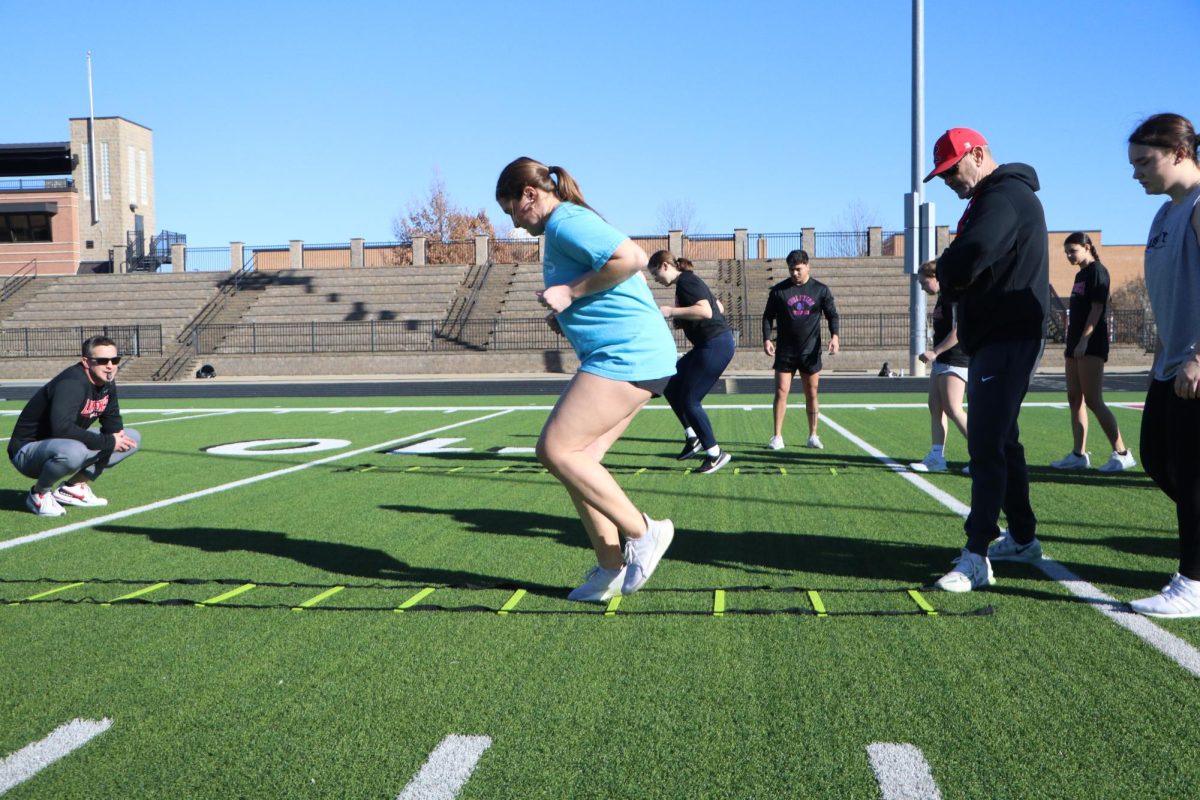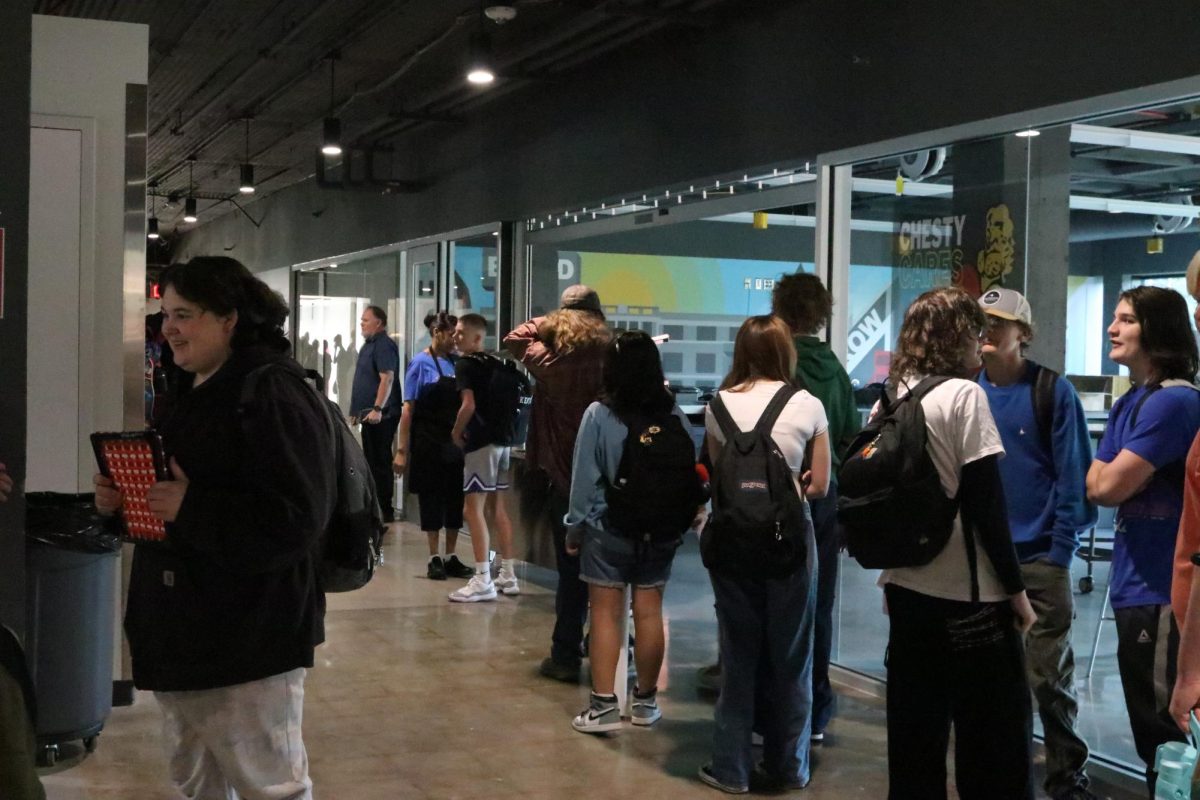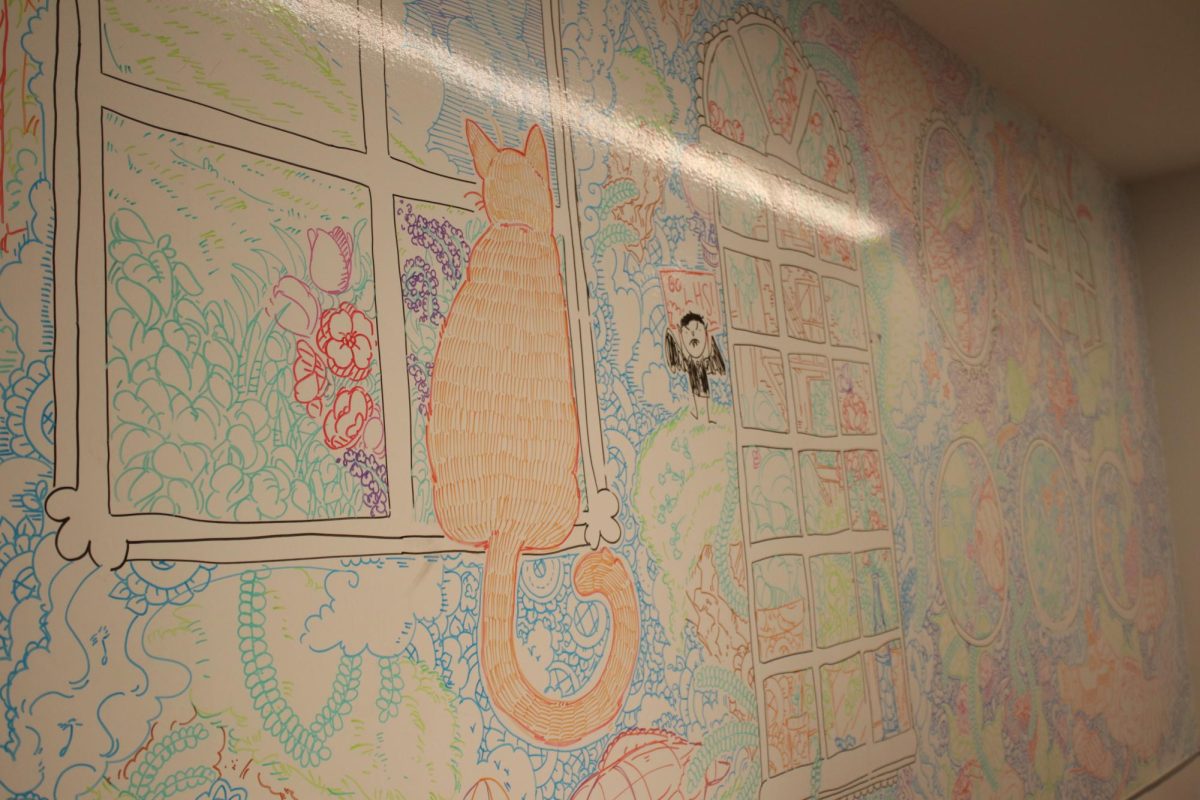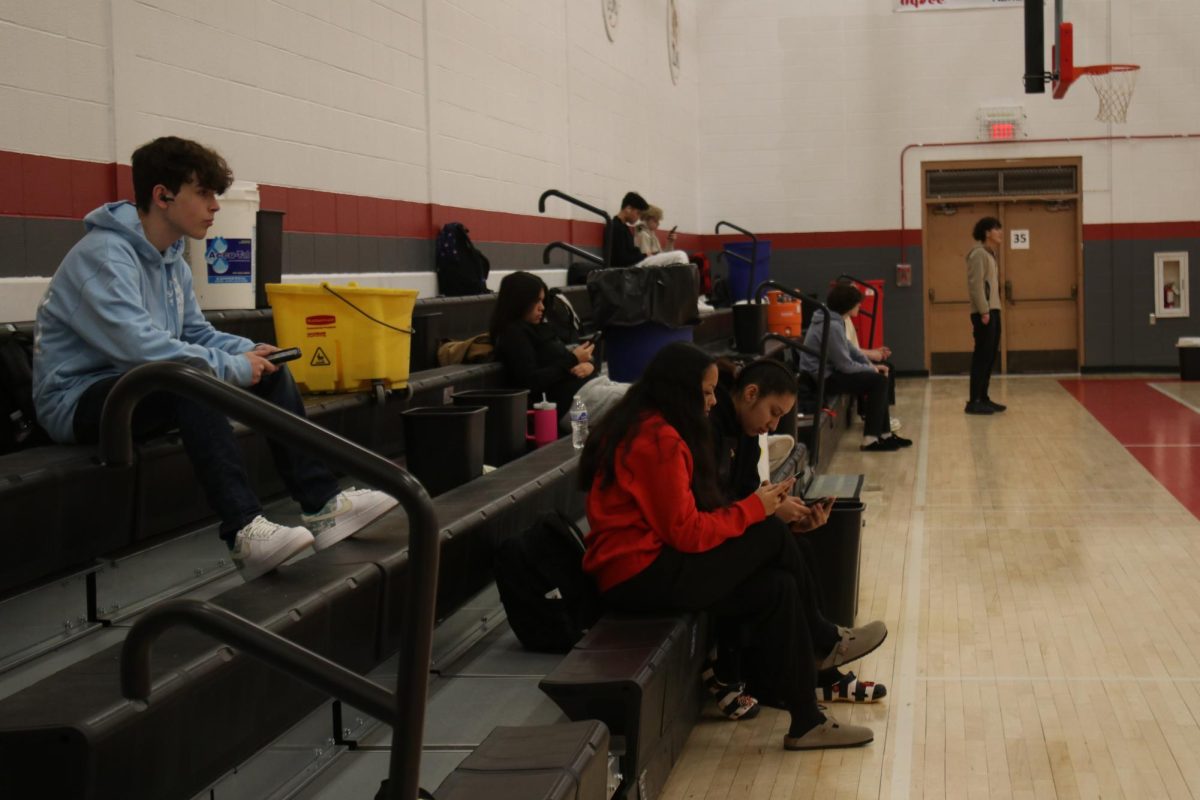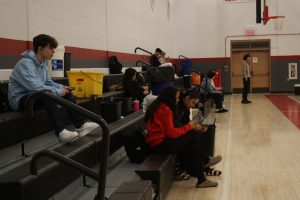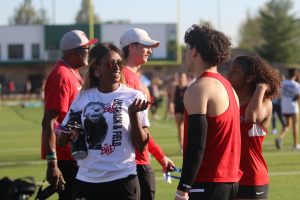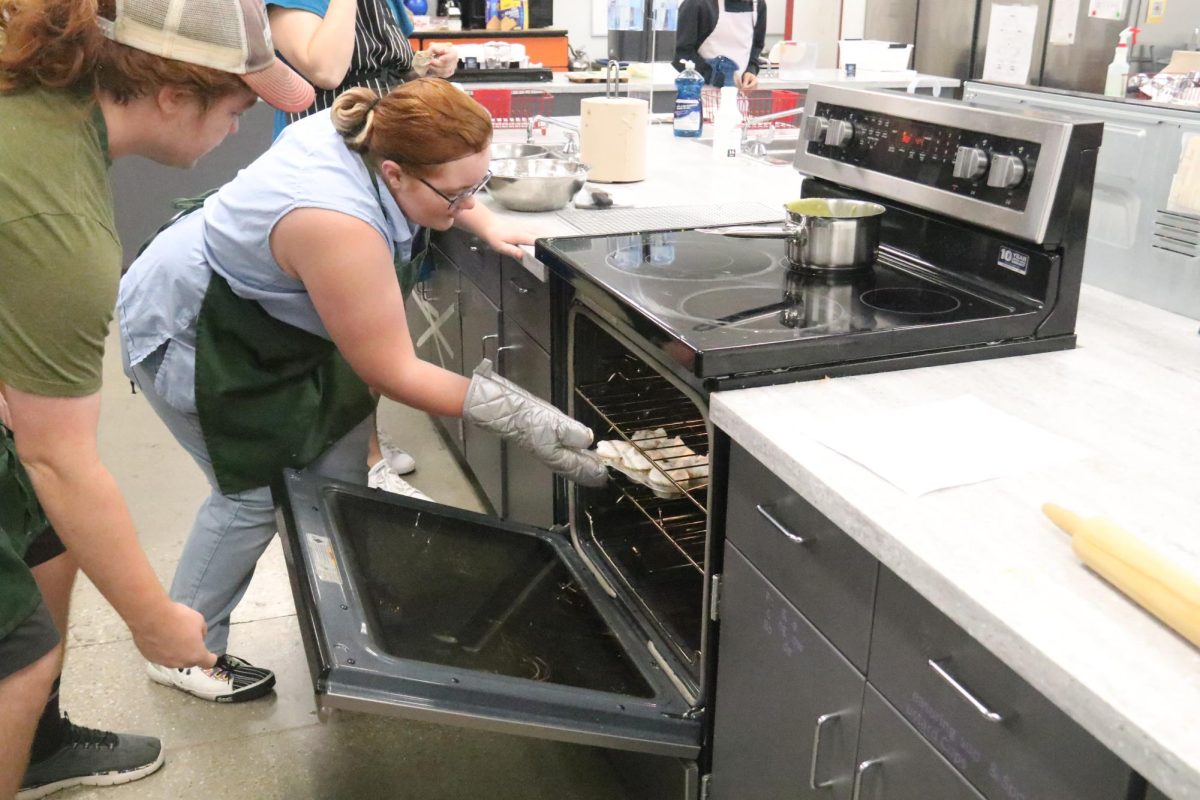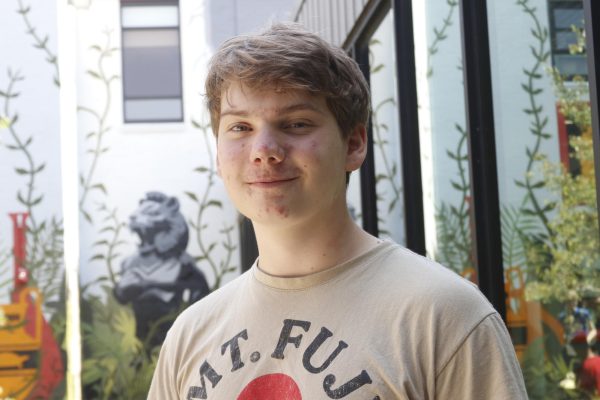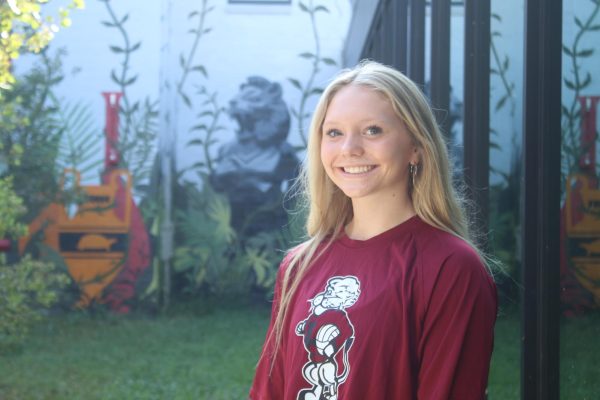A grease fire earlier this semester in culinary teacher Rose Barry’s classroom revealed an oversight in the school’s recent reconstruction.
For about six weeks, culinary students were limited to baking and boiling while the district sorted through questions about whether it complied with fire codes.
The problems began when Barry’s Culinary II students were heating oil in their pans to stir fry when seniors Henry Keeler and Dylan Alverado’s pan caught on fire.
“We started freaking out,” Keeler said. “It was probably like a foot or two from my face when it shot out, and it was sick.”
Senior Jonah Lyles was working with his own group when the incident happened and noted the intensity of the fire.
“It was like an explosion,” Lyles said. “All of the sudden the kitchen on the far side is on fire.”
The fire was quickly contained by Barry and nobody was hurt, but the real danger was the smoke that remained. Due to the lack of vent hoods in the classroom, a typical requirement of commercial kitchens, the smoke did not dissipate, forcing the class to evacuate. The classroom also lacks windows that open. Meanwhile, the culinary kitchens at both the College and Career Center and Free State have ventilation systems.
After the September fire, Barry was told that her class would no longer be able to cook with oil in order to meet fire codes. When the state fire marshal had received word of the fire, the district was issued a deficiency and ordered to rectify the issue or face a fine, said Tom Lauts, USD 497’s maintenance and construction supervisor.
This restriction limited the class to only baking things in the oven, boiling and steaming, even though the class “is not a baking and pastry class,” according to Barry.
Notably, the Free State High School kitchen is equipped with vent hoods, which particularly annoyed Barry. The LHS kitchen was moved and constructed as part of the recent bond issue overhaul of LHS, but ventilation wasn’t included.
“It is not fair for the students who signed up to learn about culinary arts to then switch them to only a baking class and they can take culinary classes at Free State or the College and Career Center,” Barry said.
She worried that besides the class not being what students signed up for, this limitation would have prevented the culinary program from reaching learning benchmarks and retaining corporate sponsorships.
Multiple high school culinary benchmarks refer to methods of cooking that require oil.
We cannot call ourselves a culinary class if we cannot cook on the stovetop.
— Rose Barry, culinary teacher
“All of your dry cooking methods are going to require some kind of oil or fat,” Barry said. “It is just not possible to do it without it.”
Other benchmarks require the use of convection cooking.
“That only happens on the stovetop, and if we can’t use oil, we’re not using that type of heat transfer,” Barry said.
In addition to not reaching these benchmarks, certain corporate sponsors would not be sustainable in an oil-free kitchen. Every year, Barry receives $400 for the purchase of beef products from the Kansas Beef Council.
Beyond benchmarks and funding, some students were concerned about what the future could hold for their culinary classes.
“I feel like it kind of defeats the whole purpose of culinary class,” Keeler said. “Ninety percent of things you’re going to cook on a stove, you heat it up and put something in the oil.”
Barry continued to seek a solution, expressing concerns to the district about the new limitations.
“We cannot call ourselves a culinary class if we cannot cook on the stovetop,” Barry said. “Hopefully, I get some answers in the near future. I would hate to not be able to teach these things to my students.”
After weeks of baking and boiling and talks of possibly retrofitting the room with ventilation, Barry got the OK to cook with oils again. In an email, she was told that her classroom was compliant with codes after all. Because the residential stoves weren’t being used for a commercial purpose, they didn’t require ventilation hoods.
“I was reading the email while students were working independently, and I freaked out,” Barry said. “I was so excited I stopped the class, and I was reading them the email letting them know we could cook again.”



